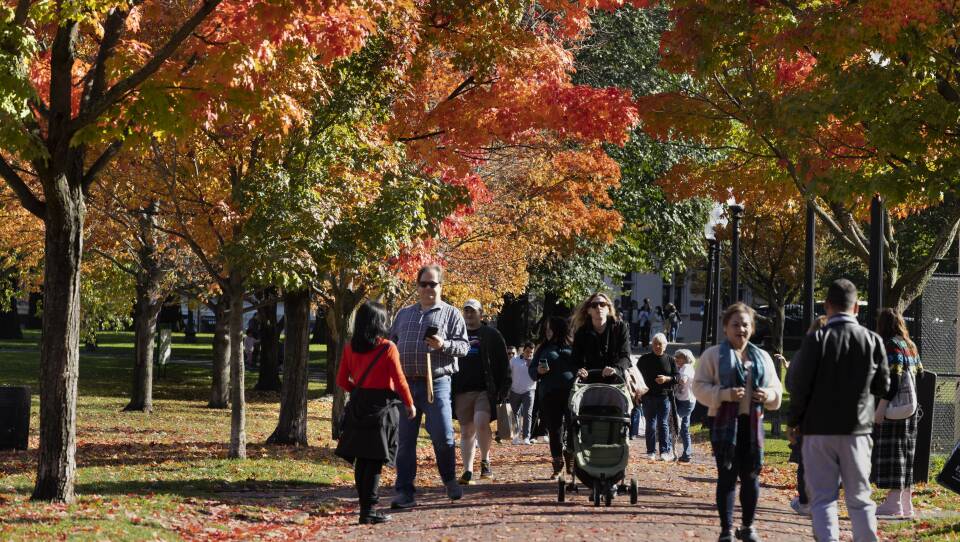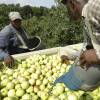Boston has been experiencing unseasonable warm weather this week. GBH's Morning Edition asked our audience to send their weather and gardening questions, and meteorologist Dave Epstein answered them on the air and explained the warm temperatures. This transcript has been edited for clarity.
Have a gardening or weather question for meteorologist Dave Epstein? Tweet him @GrowingWisdom , email us at thewakeup@wgbh.org , or text 617-300-2008.
More Local News
It’s November. Why are there 70-degree days in the forecast?
It is typical for Boston to get one 70-degree day in November, Epstein said. But that number could reach four or more this year. In November 2020, the region had six 70-degree days, he said.
“It is going up,” Epstein said. “As the climate changes, we're going to have more of these. And it feels a little weird.”
This warm, sunny, mild weather is not normal — though with climate change, it may become more common in the future, Epstein said.
“You can still be a climate activist and you can still talk about things that you want to do to help that,” Epstein said. “But the fact of the matter is, it's going to be 75 degrees and sunny. I'm going to enjoy it.”
Epstein said he’s trying to focus on a silver lining: Warm weather means he doesn’t have to turn on the heat, meaning he’s not burning fossil fuels that are both environmentally harmful and expensive.
What does this sudden weird change in weather mean for plants?
Plants will likely weather the warmer temperatures without an issue, Epstein said. Problems usually arise when warm spells come in January or February, making plants that have gone into a winter slumber awaken only for another frost to come before spring.
“We saw that back several years ago when it was really warm and then we had a Valentine's cold,” Epstein said. “We had the peach crop completely damaged.”
I want to try to tap my own maple tree this year. I heard the timing has to do with it being freezing at night and warm still during the day. I'm assuming that'll be soon. Any idea of the window? — Hannah in Watertown
People can absolutely tap maple trees themselves — but wait until spring.
“You do not want to be tapping trees in the fall because the sap is actually stopping from flowing,” Epstein said. “The trees are shutting down at this point. We wait until spring when we start getting those milder days and still cold nights. And that's when the sap starts running, which is when you want to tap.”
I heard there's a lunar eclipse in the early morning on Election Day. If I stumble out of bed for a quick peek, where in the sky should I look? —Kevin in Holden
The lunar eclipse Tuesday should begin a few hours before the moon sets on Massachusetts, Epstein said, around 6 a.m.
It should be visible even in areas with high light pollution, like the middle of Boston, so long as there’s a clear view west, unobstructed by buildings or clouds.
“In this particular case, the moon is going to be setting about the time the sun is rising. So you want to look to the west if you just have a nice, clear view of the horizon,” he said.
Should I bring my fig tree inside?
Some tree owners keep their plants mobile, planting them in a pot that can move outdoors in the summer and indoors in the winter.
“Figs can handle a little bit of cold. Some of my citrus are still out because it's been so warm,” Epstein said. “I would say, maybe as you get towards mid- to later in this month, when we see consistent temperatures below freezing.”
Keep in mind that the advice is location-dependent, Epstein said. Frost usually comes to Western Massachusetts before it comes in Boston.
Epstein also recommended spraying indoor-outdoor trees down with horticultural oil before bringing them inside.
“It's organic. It'll smush any bugs, so you don't bring any aphids or anything like that that might be on the tree that you don't want to see inside,” he said.










